Report this entry
More from the same community-collection
Marriage License Luis Flores and Maria de la Luz Marquez
Marriage license from my grandparents wedding on March 31, 1940.
Asarco - El Paso, Texas - 1960's
This is a picture of ASARCO men that worked there and some lived ...
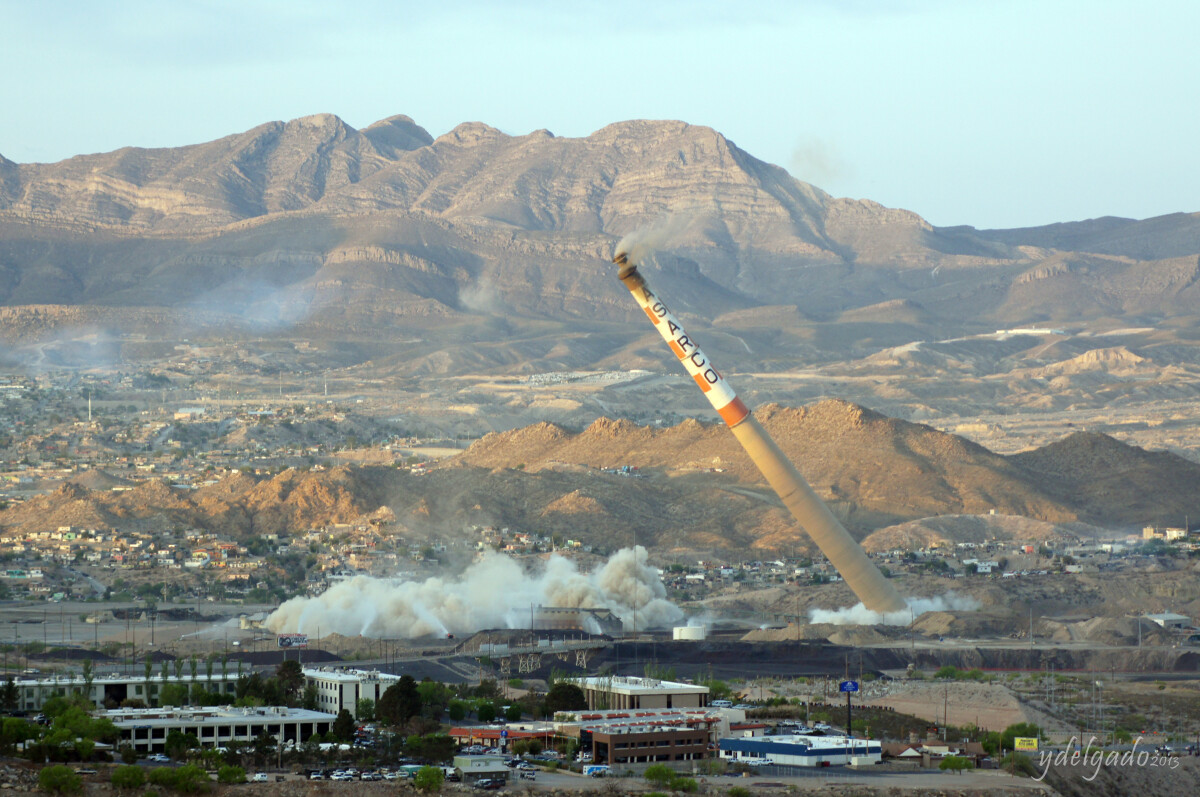
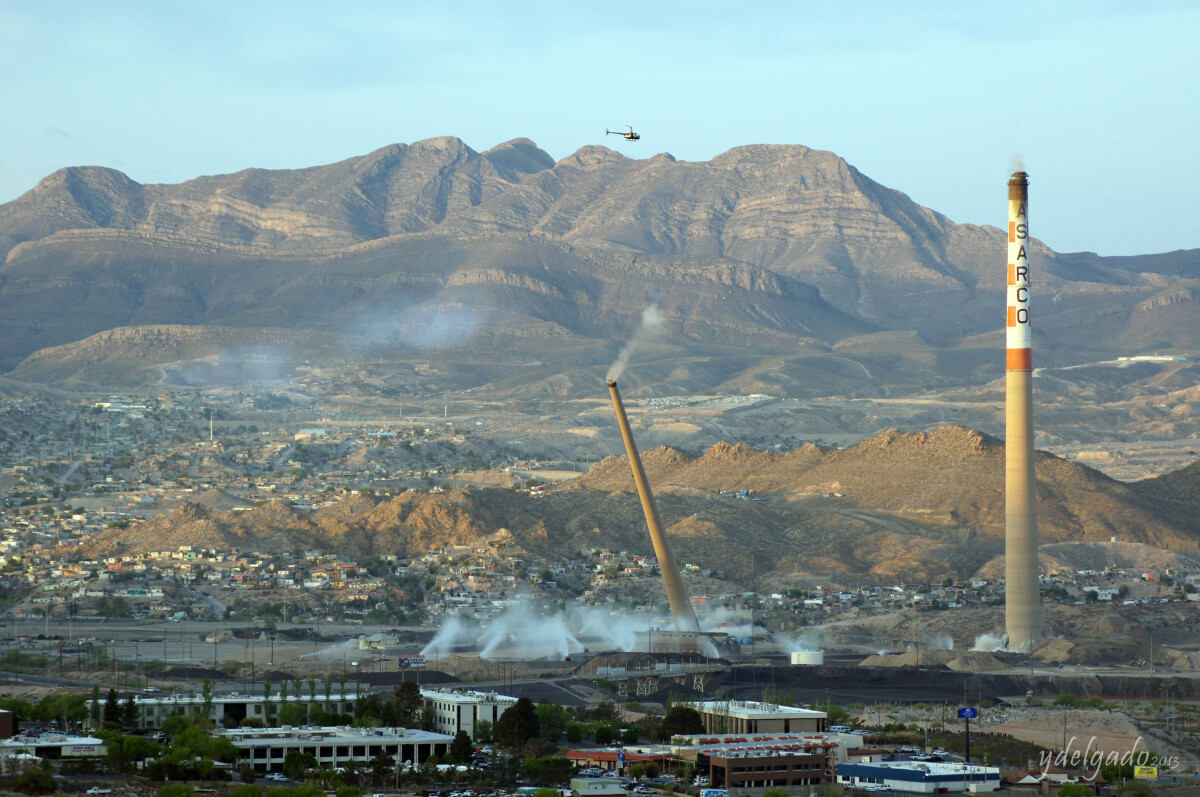
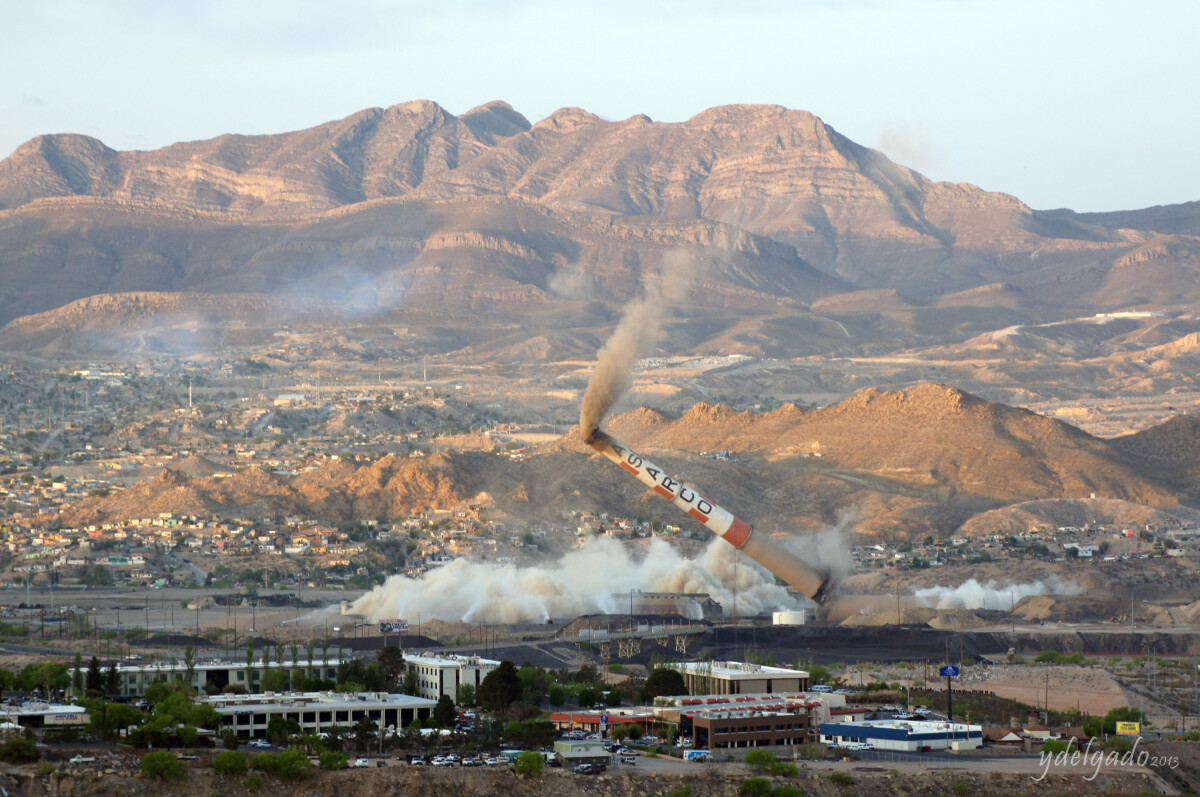
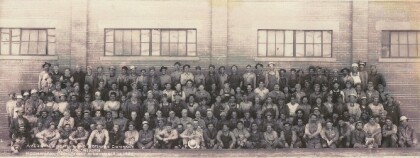
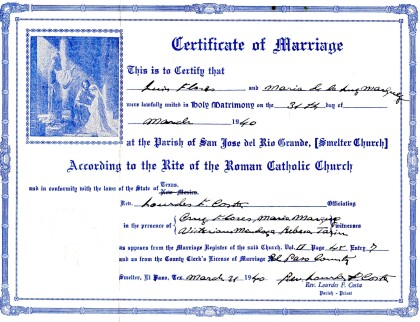
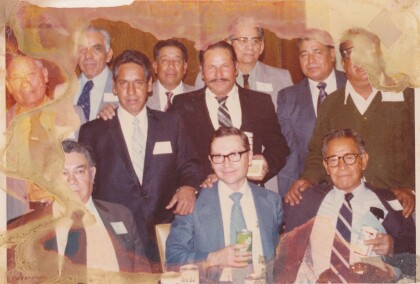
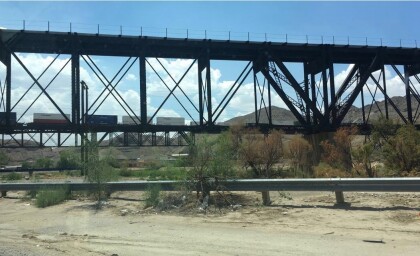
Comments
Add a comment